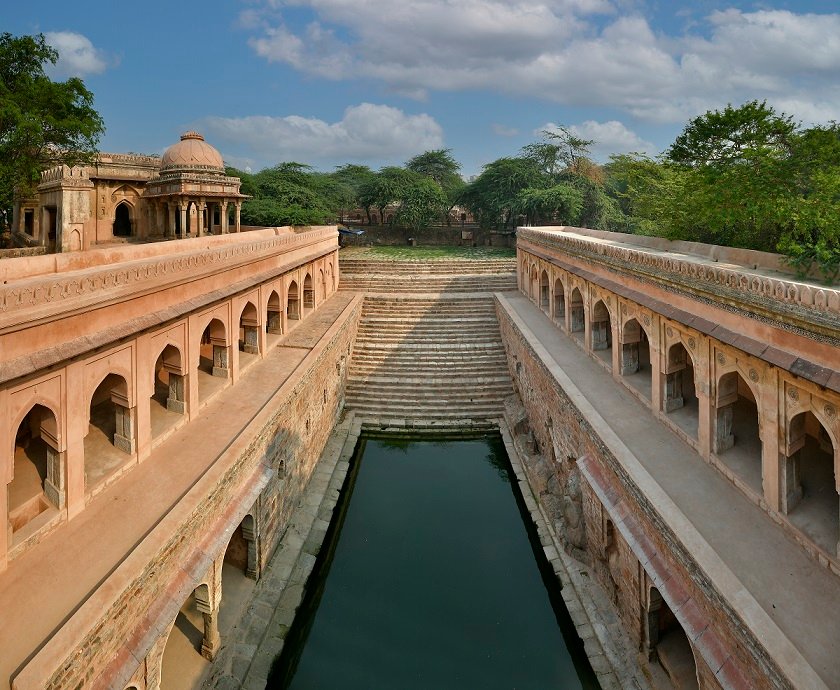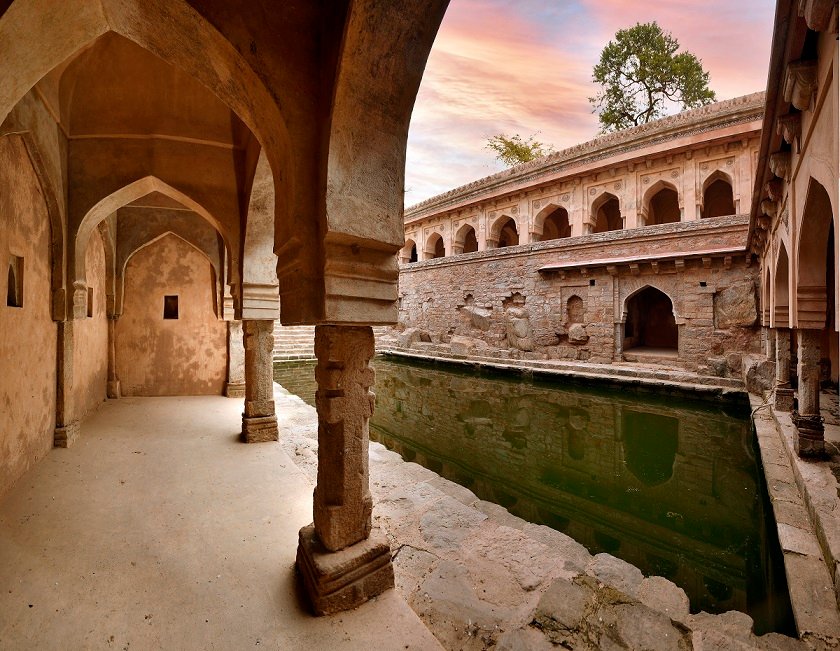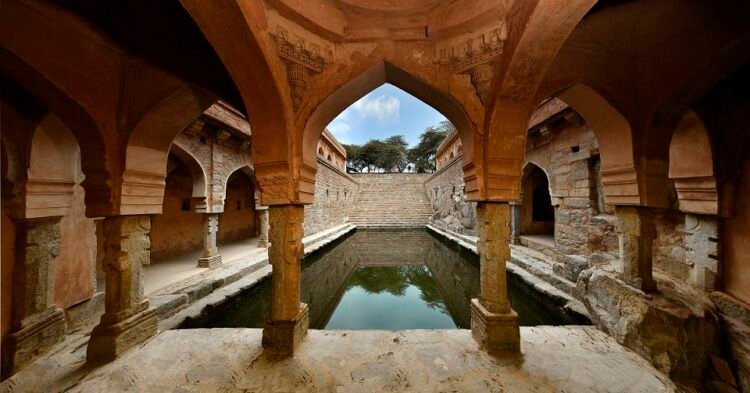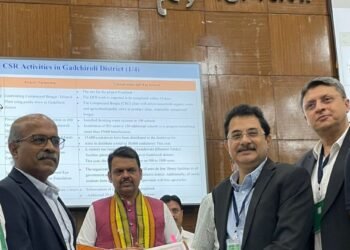NEW DELHI (India CSR): The Archaeological Survey of India (ASI), World Monuments Fund India (WMFI) Association, and TCS Foundation announce the successful completion of conservation and rejuvenation of Rajon ki Baoli, a historic water system located within the Mehrauli Archaeological Park, New Delhi.
This project marks a milestone in the ongoing efforts by WMF India to preserve India’s cultural heritage. The restoration of Rajon ki Baoli is part of WMFI’s Historic Water Systems of India project, sponsored by TCS Foundation. As climate change disrupts rainfall patterns and strains water resources, reviving traditional water systems offers a sustainable response to mitigating growing water scarcity. This effort is also part of WMF’s Climate Heritage Initiative, launched in 2024, which harnesses heritage preservation and local knowledge to help communities adapt to environmental challenges while protecting cultural traditions.
An Architectural and Historical Marvel
Situated in the Mehrauli Archaeological Park, Rajon ki Baoli is a 16th-century Lodi-era stepwell that exemplifies Sultanate architecture and traditional water management. Commissioned in about 1506, this four-tiered subterranean structure showcases a blend of functional water engineering and artistic expression. It features arched colonnades and intricate stucco medallions with geometric and floral bands. With steps descending to the water on the south and a series of arches framing the well on the north, the Baoli functioned both as a vital water source and a resting spot for travellers and masons. The total site area is 1,610 square meters, with the Baoli’s depth being 13.4 meters and the tank occupying a footprint of 23 x 10 meters.

Role of WMFI, ASI and TCS Foundation
The effort in restoration and rejuvenation was made possible through the collaborative involvement of the Archaeological Survey of India (ASI), World Monuments Fund India (WMFI), and TCS Foundation (TCSF). Recognizing the Baoli’s historical and ecological value, they partnered with local stakeholders to drive a conservation effort rooted in sustainability and community engagement. WMFI provided technical conservation expertise, and TCSF supported the initiative as part of its commitment to cultural heritage and sustainability on the ASI-owned monument.
The Restoration Journey
The restoration of the Baoli in Mehrauli Archaeological Park was launched to address decades of neglect and decay due to a rising water table and groundwater contamination.
Key highlights of the conservation process include:
- Water Resilience Measures: Sewerage was diverted to proper lines, the Baoli was cleaned and desilted, and fish were introduced to maintain water quality.
- Preserving Aesthetic and Historical Integrity: Guided by archival research, the restoration aimed to preserve the Baoli’s Lodi-era character, using traditional materials like lime mortar and plaster, crafted by skilled artisans.
- Community Involvement: Local communities and stakeholders were engaged to raise awareness of the site’s importance and promote sustainable practices for its preservation and long-term care.

A Model for Sustainable Conservation
The rejuvenation of Rajon ki Baoli will enhance groundwater recharge and improve the local microclimate, contributing to long-term water security. It will also serve as a model for sustainable heritage-led water conservation in urban settings, demonstrating how conservation of water bodies can contribute to water security and climate resilience.
Reviving Heritage for Future Generations
As part of its post-restoration vision, Rajon ki Baoli is envisioned to be a cultural destination within the Mehrauli Archaeological Park. Tours and community events will be organized to enhance visitor engagement and understanding of how heritage conservation can contribute to water security and appreciation of Delhi’s rich cultural heritage.
Visit and Support
Rajon ki Baoli is now open to visitors. We invite everyone to witness this iconic structure and support the efforts to preserve India’s cultural heritage.
“India’s historic water systems reflect centuries of ingenuity in resource management,” said Malini Thadani, Executive Director of WMF India. “Restoring Rajon ki Baoli, with the support of TCS Foundation, is an opportunity to celebrate this legacy while engaging communities in sustainable stewardship of our shared heritage.”
(India CSR)























